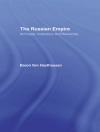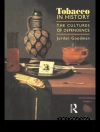From the moment of its inception, the East German state sought to cast itself as a clean break from the horrors of National Socialism. Nonetheless, the precipitous rise of xenophobic, far-right parties across the present-day German East is only the latest evidence that the GDR’s legacy cannot be understood in isolation from the Nazi era nor the political upheavals of today. This provocative collection reflects on the heretofore ignored or repressed aspects of German mainstream society—including right-wing extremism, anti-Semitism and racism—to call for an ambitious renewal of historical research and political education to place East Germany in its proper historical context.
Inhaltsverzeichnis
New Perspectives on the German Democratic Republic: A Plea for a Paradigm Shift
Enrico Heitzer, Martin Jander, Anetta Kahane, and Patrice G. Poutrus
Part I: German Democratic Republic
Chapter 1. The Loyalty Trap: Wolfgang Steinitz and the Generation of GDR–Founding Fathers and Mothers
Anette Leo
Chapter 2. The Effects of a Taboo: Jews and Antisemitism in the GDR
Anetta Kahane
Chapter 3. Divided City – Shared Memory? Dealing with the Nazi Past in East and West Berlin from 1948 to 1961
Gerd Kühling
Chapter 4. The GDR and Opposition from the Right: A Plea for Broader Perspectives
Enrico Heitzer
Chapter 5. The GDR’s Judgment against Hans Globke: On the Conviction of the Nazi Lawyer and Head of the Federal Chancellery under Konrad Adenauer by the GDR’s Supreme Court in the Summer of 1963
Klaus Bästlein
Chapter 6. Might Through Morality? Some Comments on Antifascism in the GDR
Christoph Classen
Chapter 7. Toward a Sociology of Intelligence Agents: The GDR Foreign Intelligence Service as an Example
Helmut Müller Enbergs
Chapter 8. At War with Israel: Anti-Zionism in East Germany from the 1960s to the 1980s
Jeffrey Herf
Chapter 9. Holocaust Lite? Fiction in Works by Christa Wolf and Fred Wander
Agnes Mueller
Chapter 10. The Stigma of “Asociality” in the GDR: Reconstructing the Language of Marginalization
Katharina Lenski
Chapter 11. Lesbians and Gays in the German Democratic Republic: Self-Organizing, Politics of Remembrance, Discrimination, and Public Silencing
Christiane Leidinger and Heike Radvan
Chapter 12. Have We Learned the “Right” Lessons from History? Antiziganism and the GDR’s Dealings with Sinti and Roma
Ingrid Bettwieser and Tobias von Borcke
Chapter 13. The GDR People’s Chamber Declaration of 12 April 1990: Ending the “Universalization” of the Holocaust
Martin Jander
Part II: Federal Republic of Germany
Chapter 14. Understanding Silence: An Ongoing Search for People, Things, and Connections Not Really Unknown
Regina Scheer
Chapter 15. “A Reassessment of European History?” Developments, Trends, and Problems of a Culture of Remembrance in Europe
Günter Morsch
Chapter 16. Analogies and Imbalances: The Effects of Memorial Site Policies on Dealing with Places from the GDR Past on NS Reappraisal
Carola Rudnick
Chapter 17. From the Ideological Repudiation of Culpability to Ethnocentric Propaganda
Anetta Kahane
Chapter 18. The Book and the Audience: Comments on the Reception of Undeclared Wars with Israel in Germany
Jeffrey Herf
Chapter 19. Another Past that Lives On: My Trying Journey from Contemporary Witness to Contemporary Historian
Patrice Poutrus
Chapter 20. Nonconformity in a German Postwar Society: Questions for GDR and Transformation Studies
Raiko Hannemann
Chapter 21. Monumental Problems: Freedom and Unity Come to Berlin
Daniela Blei
Über den Autor
Patrice G. Poutrus is a Research Fellow in the Department of Modern and Contemporary History and History Didactics at the University of Erfurt as part of the project ‚Dictatorship, Experience, and Transformation: Participatory Memory Research.‘ Since 2016 he has been a member of the DFG network ‚Foundations of Refugee Research.‘












